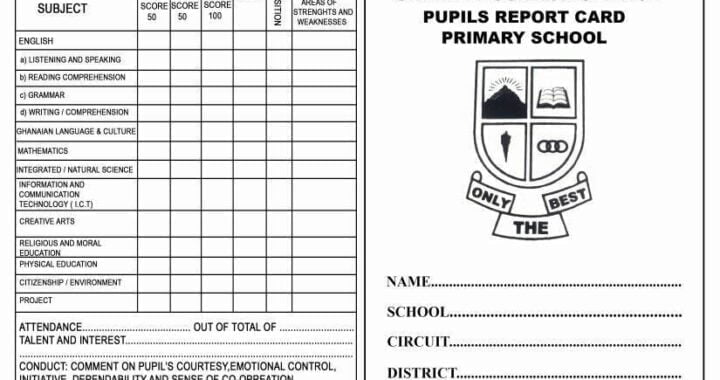5 Steps For Improving Your Decision Making Skills

Decision Making Skills play a crucial role in our lives. On a daily basis, we encounter various decisions, ranging from trivial ones like choosing our breakfast to intricate ones like determining our professional trajectory. Nevertheless, decision-making can pose difficulties, particularly when the outcomes hold significant consequences. In this piece, we will delve into five strategies that can enhance your decision-making abilities and enable you to arrive at more favorable choices.
Identifying the Problem
Decision Making Skills requires a thorough understanding of the problem at hand. To identify the problem, you need to ask yourself several questions. What is the issue, and why is it important to solve? What are the underlying causes of the problem? How is the issue affecting you or others? Who else is impacted by the problem? Are there any potential long-term consequences if the issue is not addressed?
By answering these questions, you can gain a deeper understanding of the problem you are trying to solve. This will allow you to make better decisions when it comes to developing solutions that address the root cause of the issue. Without a clear understanding of the problem, any solutions you propose may only address the symptoms of the problem, rather than the problem itself, leading to a temporary fix that does not fully resolve the issue.
ALSO READ: Bill Gates marriage divorce: Four Decision Making Strategies We Learned
Gathering Information
Before making a decision, it is essential to gather as much information as possible. This step involves researching, analyzing, and evaluating relevant data, facts, and opinions. Gathering information helps you to make an informed decision and reduces the likelihood of making a bad decision. To gather information, you can use various sources such as books, the internet, experts in the field, and your own experiences.
The importance of gathering information cannot be overstated. The more information you have, the better equipped you are to make an informed decision. In today’s digital age, there is no shortage of information available at our fingertips. The internet has made it easier than ever to access information on virtually any topic. However, with so much information available, it can be overwhelming to know where to start.
One way to gather information is to consult experts in the field. Experts can provide valuable insights and perspectives that you may not have considered. Additionally, they can help you to identify potential blind spots or biases in your thinking. Another way to gather information is to conduct your own research. This can include reading books or articles on the topic, attending conferences or seminars, or conducting surveys or interviews.
It is also important to evaluate the reliability and validity of the information you gather. Not all sources are created equal, and it is important to be discerning in your evaluation of information. Consider the source of the information, the credentials of the author or expert, and the methodology used to collect the data. By carefully evaluating the information you gather, you can ensure that you are making decisions based on accurate and relevant information.
ALSO READ: 8 skills that will change the leadership narrative of Africa tomorrow
Gathering information is an essential step in making informed decisions. By using a variety of sources and carefully evaluating the information you gather, you can ensure that you are making decisions based on accurate and relevant information. So next time you are faced with a decision, take the time to gather as much information as possible. Your future self will thank you.
Evaluating the Options
After gathering information, the next step is to evaluate the options available. The process of evaluating options involves carefully considering the advantages and disadvantages of each option and weighing the potential outcomes of each decision. By taking the time to thoroughly evaluate each option, you can gain a deeper understanding of the potential consequences of each decision, and make a more informed choice that aligns with your goals, values, and priorities.
One important factor to consider when evaluating options is the impact that each decision could have on your short-term and long-term goals. For example, you might prioritize short-term gains over long-term benefits, or vice versa. You might also consider the potential risks associated with each option, and weigh those risks against the potential rewards.
Another key consideration when evaluating options is your personal values and priorities. You may have certain values or principles that are particularly important to you, and these may influence which option you ultimately choose. For example, you might prioritize environmental sustainability, social justice, or personal growth.
It is also important to be aware of any biases or emotions that might cloud your judgment when evaluating options. We all have biases and preconceptions, and these can sometimes lead us to make decisions that are not in our best interests. By being aware of these biases and actively working to overcome them, you can make more objective and rational decisions.
Decision Making Skills
Once you have evaluated the options, it is time to make the decision. Making a decision is not always easy, especially when you have several good options to choose from. However, it is important to remember that making a decision is better than not making one at all. When you make a decision, you take control of the situation and move forward with a plan.
When making a decision, it is important to consider all factors involved. This includes your own personal values and priorities, as well as any external factors that may influence the outcome. Take the time to weigh the pros and cons of each option, and consider how each one aligns with your goals and objectives.
Once you have made a decision, it is important to commit to it fully. This means putting in the effort and resources necessary to make it work, and remaining focused on your goals. Of course, it is important to remain flexible and adaptable in case the situation changes or new information becomes available. However, if you have done your due diligence and made the best decision possible, you should trust yourself and have confidence in your ability to succeed.
Reflect, Learn, and Apply on Decision Making Skills
The last and most important step in making better decisions is reflecting on the decision making skills process, learning from it, and applying it to future situations. Reflecting and learning helps you to identify what worked well and what did not in the decision making skills process. You can then use this information to improve your decision making skills and make better decisions in the future. Additionally, applying what you have learned from your past decisions to new situations will help you to make more informed and effective decisions in the future. This step is crucial in developing your decision-making skills and becoming a better decision maker.
MORE: Wellbeing business
In summary we all have to make many decisions throughout our daily lives. Some of these decisions require little effort, while others require more time and deeper thought before coming to a final solution. Remember, there are five basic steps to good decision making. Why is those five the ideal number? Because a significant part of decision making skills is understanding and knowing a simple technique; and also regularly practicing that technique.
When there are more steps than we can count on one hand, most people tend to either forget a step, or misconstrue the order in which the steps must be taken. If you follow these five steps, and also remember the common pitfalls previously addressed, you will be well on your way to making good decisions for yourself.


 GES 2024-2025 Academic Calendar for Public Schools
GES 2024-2025 Academic Calendar for Public Schools  GES to recruit university graduates and diploma holders-GES Director General
GES to recruit university graduates and diploma holders-GES Director General  GES is expected to announce reopening dates for public schools today
GES is expected to announce reopening dates for public schools today  Dr. Bawumia’s Smart Phone Credit Will Take 125 Years To Repay: A Misleading Promise
Dr. Bawumia’s Smart Phone Credit Will Take 125 Years To Repay: A Misleading Promise  2024-2025 Report Card Grading, Student Attitudes, Interests and Conduct Samples for Teachers
2024-2025 Report Card Grading, Student Attitudes, Interests and Conduct Samples for Teachers  US Staffing Agencies Recruiting International Job Seekers With Work Visa Sponsorship
US Staffing Agencies Recruiting International Job Seekers With Work Visa Sponsorship  Buy 1 Gig MTN or Airtel Tigo data for only GHS6.00 not GHS17.00
Buy 1 Gig MTN or Airtel Tigo data for only GHS6.00 not GHS17.00